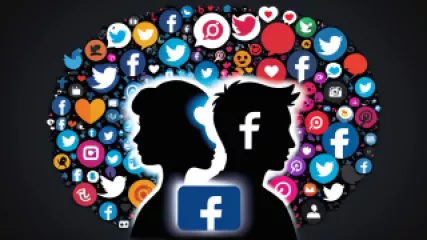The Influence of Social Networking on Mental Health
The Influence of Social Networking on Mental Health
Over the past decade, social networking has become an integral part of our daily lives. Platforms like Facebook, Instagram, and Twitter have connected us in ways we never thought possible. While social media has undoubtedly brought people together and provided a platform for self-expression, it is crucial to consider its impact on mental health. In this opinion piece, we will delve into the influence of social networking on mental well-being and explore the potential risks and benefits associated with these digital platforms.
The Allure of Social Networking
Social networking platforms offer us an opportunity to connect with friends, family, and even strangers from around the world. We can share our thoughts, experiences, and photos with just a few taps on our smartphones. The allure of social networking lies in its ability to create a sense of belonging and community. It allows us to keep up with the lives of others, share our achievements, and seek validation from our peers.
However, this constant exposure to curated versions of others' lives can have detrimental effects on our mental health. Comparing ourselves to others' highlight reels can lead to feelings of inadequacy, envy, and low self-esteem. The pressure to present a perfect image online can be overwhelming, as we strive to gain likes, comments, and followers. This quest for validation on social media can take a toll on our mental well-being.
The Dark Side of Social Media
Social media platforms are not without their drawbacks. Cyberbullying, online harassment, and the spread of misinformation are prevalent issues that can significantly impact mental health. The anonymity provided by the internet often emboldens individuals to engage in hurtful behavior, leading to emotional distress and even long-term psychological trauma.
Moreover, the constant exposure to negative news and viral content on social media can contribute to anxiety, depression, and feelings of helplessness. The fast-paced nature of social networking makes it easy for harmful content to go viral, amplifying its impact on mental health.
The Rise of Digital Therapy
As the negative effects of social media on mental health become more apparent, the need for support and therapy has increased. Fortunately, the digital age has also brought advancements in mental health services. Online coaching services and therapy sessions have become more accessible, providing individuals with a convenient way to seek professional help.
Digital therapy sessions allow individuals to engage in therapy from the comfort of their own homes. This format eliminates barriers such as transportation issues or the fear of stigma associated with seeking therapy in person. Through online platforms, individuals can connect with licensed therapists and receive the support they need to navigate the challenges posed by social media.
Finding Balance in the Digital Age
The influence of social networking on mental health is a complex issue that requires a multifaceted approach. While it is essential to recognize the potential risks and take steps to protect our well-being, we should not overlook the positive aspects of social media. It has connected people across borders, raised awareness about social issues, and provided a platform for marginalized voices.
To find balance in the digital age, it is crucial to establish healthy boundaries with social media. This may involve limiting screen time, unfollowing accounts that trigger negative emotions, and seeking support when needed. Additionally, cultivating real-life connections and engaging in offline activities can help counteract the potential negative effects of social networking on mental health.
Conclusion
Social networking has revolutionized the way we connect and share information. However, it is vital to recognize its impact on mental health. The constant exposure to carefully curated online content, cyberbullying, and the spread of harmful information can significantly affect our well-being. By acknowledging the potential risks and taking steps to protect ourselves, we can navigate the digital landscape more mindfully. Remember, finding balance in the digital age is key to maintaining good mental health.
Disclaimer: The views and opinions expressed in this article are those of the author and do not necessarily reflect the official policy or position of any agency or organization.






